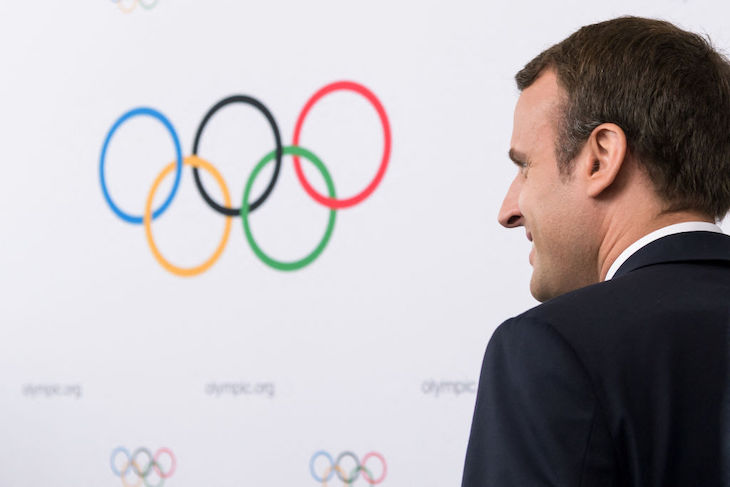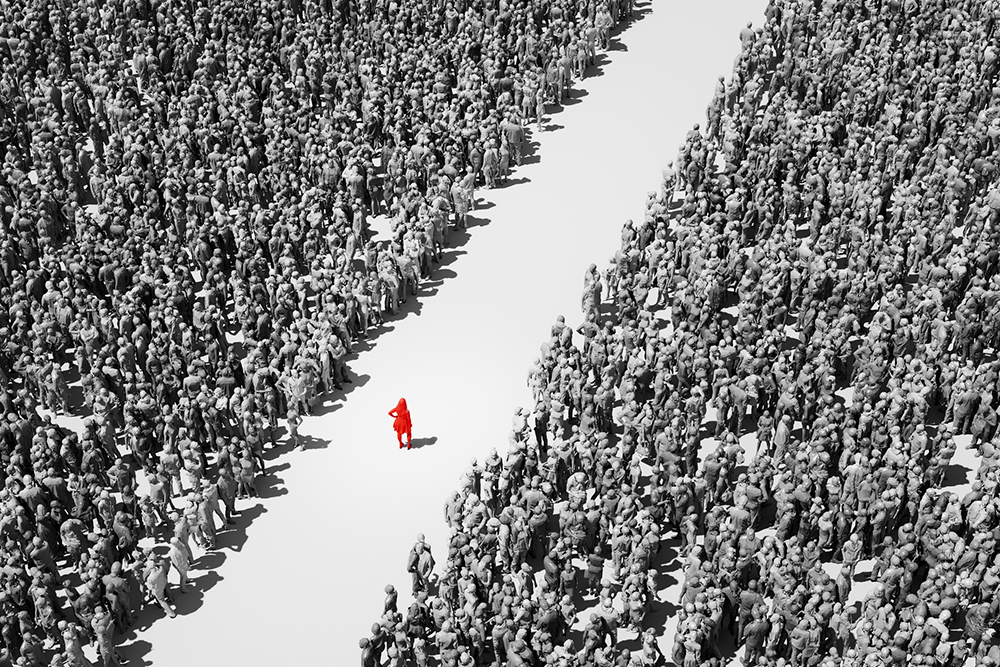The mayor of Paris went for a swim in the Seine on Wednesday and emerged invigorated. The water, said Anne Hidalgo, was ‘soft and wonderful’. Hidalgo had initially scheduled a date last month for her dip but the quality of the water didn’t pass muster so she was forced to postpone her PR stunt – until nine days before Paris welcomes the XXXIII Olympiad.
Violence has rocked Paris this week
There are no reports that Hidalgo is now laid up in bed with a nasty bacterial infection, so one must presume the Seine will be able to host several swimming events in the coming weeks. That was the good news for the mayor.
The bad news is the violence that has rocked Paris this week. On Monday a soldier on patrol at the Gare de l’Est was wounded in a knife attack; on Wednesday a diner was killed when a man deliberately drove his car into a restaurant’s terrace; and on Thursday police shot dead a knifeman after he had stabbed an officer near the Champs-Elysées.
In addition, police have also this week detained an 18-year-old neo-Nazi on suspicion of plotting a terrorist act during the Games. Earlier in the month the authorities arrested several people they described as Islamist extremists who were said to be planning a suicide bomb attack during the Games.
How long ago it seems – ten months in fact – since the biggest concern of the Games organisers were bed-bugs; this particular story was subsequently blamed on a campaign of Russian misinformation.
Perhaps, but the quality of the water in the Seine – which has forced several trial events to be cancelled – can’t be blamed on Moscow, nor the recent violent incidents, and certainly not the bureaucratic nightmare that only a French technocrat could dream up.
As of 18 July, the city has been split into four zones, some of which require a QR code to access and others that are subjected to traffic restrictions. A website has been launched to explain the complicated system to locals and tourists, but vast numbers of the latter have decided to give the city a miss this summer.
At the start of July, Air France-KLM issued a statement in which it spoke of ‘significant avoidance’ of Paris this summer by international customers. As a result, said the airline, it has forecast ‘a negative impact on its unit revenues of between €160 and €180 million (£135 million to £150 million)’.
Delta Air Lines has said it expects to lose approximately $100 million (£85 million) as a result of Americans giving Paris a wide berth this summer. ‘Unless you’re going to the Olympics, people aren’t going to Paris…very few are,’ said Delta’s CEO Ed Bastian. This diminution in visitor numbers is having a disastrous effect on shops, restaurants and bar. According to a press release issued on Friday by a collective of retailers and restaurants, there has been ‘an unprecedented drop in business and footfall’ in the last few weeks; in many cases, business is down by 30 per cent on the previous year.
There are other deterrents at play: the presence of an estimated 35,000 police personnel to guard against terrorist attacks, turning the city into a ring of steel, and the exorbitant cost of accommodation.
Macron is incapable of bringing his people together, even for a fortnight of sport
Last autumn it was reported that hotels in the French capital had upped their rates for this summer by as much as 300 per cent. But their greed got the better of their business sense and now many hotels are now struggling for guests. This has had a knock-on effect for sports travel companies.
One American firm told Bloomberg this week that sales are 80 per cent short of expectations based on previous Olympics. ‘This is the first time in 25 years that we will accept less money than we paid for hotel rooms that we contracted 30 months ago,’ said Alan Bachand.
One broadcaster, France24, recently tried to raise morale by pointing to the fact that the London Games of 2012 were also plagued by complaints and controversies in the preceding weeks. Just days before the Olympics the British government had to draft in more than 1,000 soldiers after a private security contractor failed to provided enough staff. And yet the London Olympics were a rip-roaring success.
There is a crucial distinction between the two Olympics. In 2012 Britain wasn’t in the grip of a major political crisis; France is, a result of the recent parliamentary election that was the bright idea of Emmanuel Macron. The president wanted ‘clarification’ but he got confusion, an election in which the right won the most votes but the left won the most seats.
On Thursday, the unions organised a series of demonstrations across France, the aim of which was to warn Macron not to attempt to subvert the result of the elections by cobbling together a centrist alliance.
One union leader, Pascal Lagrue, declared: ‘There is no Olympic truce! If there are demands that need to be expressed, they will be expressed’.
Another union has threatened to call a strike of security staff during the Games if their grievances are not allayed in the coming days. The contempt in which Macron is held by millions of his people is another difference between the Paris and the London Games.
Queen Elizabeth II was a hugely respected head of state, a figure around whom the country could unify. When she joined in the joke at the opening ceremony and pretended to parachute out of a helicopter into the Olympic Stadium even anti-monarchists admired her elan. Macron is incapable of bringing his people together, even for a fortnight of sport. He is the most despised and divisive president of the Fifth Republic, so unloved that most French would like to see him jump out of a helicopter in next Friday’s opening ceremony. Minus the parachute.








Comments